EARLALL dive into Blue Economy sector skills challenges and opportunities across the European regions
12/06/2024
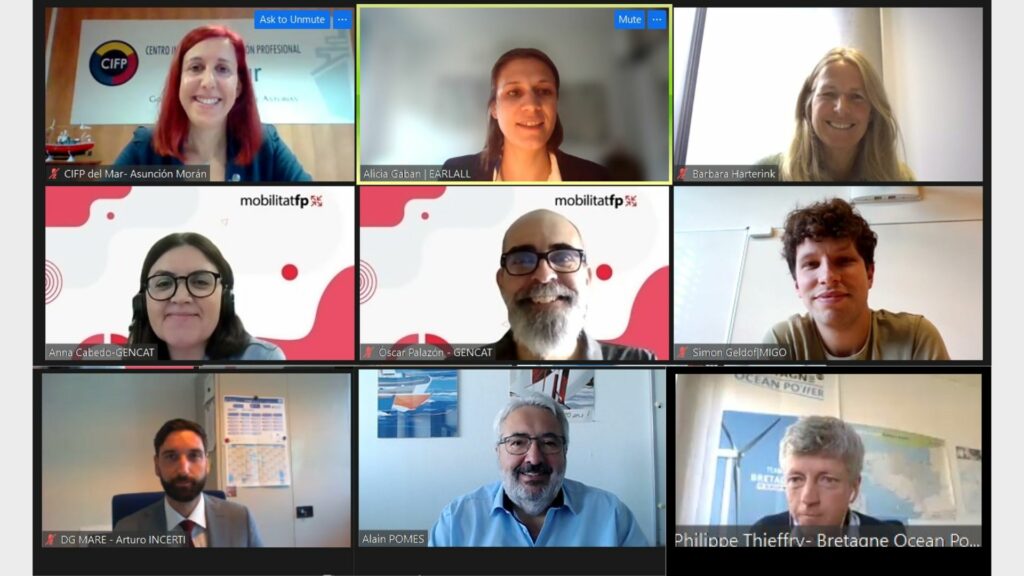
EARLALL continues with its series of webinars focused on exploring the skills challenges and opportunities in different sectors (Agriculture, Care, EU blue economy and upcoming ones on Textile and Culture and Creative Industries, among others) across European regions. These webinars are promoted by the EARLALL Working Group on Skills and Labour Market.
In light of World Ocean Day, EARLALL organised a third webinar focusing on this occasion on the skills challenges and opportunities in the Blue Economy Sectors on 11 June 2024. The webinar gathered 30 participants from regional and local authorities, EU and international institutions, and education and training experts. The webinar featured European and regional examples showcasing the importance of ocean literacy, blue skills, and vocational education and training programs to prepare students for various Blue Economy sectors. The discussions also centred around challenges and opportunities in the fisheries and aquaculture sectors, as well as the growing trend of marine renewable energy and the need for addressing the gender gap, sustainability and ageing workforce.
According to the UNESCO data, the ocean is key to our economy with an estimated 40 million people being employed by ocean-based industries by 2030, as mentioned by Òscar Palazón, (Regional Ministry of Education, Catalonia) webinar’s moderator and EARLALL’s WG Skills and Labour Market leaders, moderated the webinar, in his welcome to the participants. Òscar Palazón also explained that when we talk about the Blue Economy we are referring to “all economic activities related to oceans, seas and coasts. It covers a wide range of interlinked established and emerging sectors.” To better introduce this subject, Òscar Palazón gave the floor to Arturo Incerti, Directorate-General for Maritime Affairs and Fisheries, Unit A1: Maritime Innovation, Marine Knowledge and Investment, European Commission.
EU initiatives supporting the development of blue skills
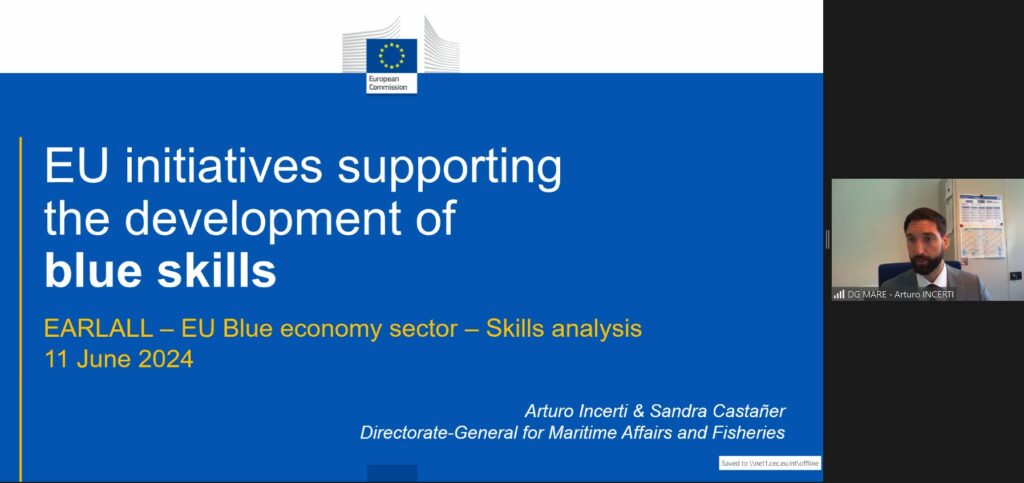
Arturo Incerti emphasized the importance of ocean literacy and blue skills in creating a sustainable and attractive career environment in the blue economy. The European Commission has launched several initiatives to address the skills gap, including:
- Trans-sectorial skills initiatives (European Year of Skills and the Pact for Skills, large-scale partnerships in shipbuilding & offshore renewable energy)
- Calls for project proposals (Blue Careers launched in this call eight projects, Mission Oceans or Erasmus+ Blueprints)
- EU4Ocean coalition to improve ocean literacy.
Incerti also presented the Net Zero Industry Academies initiative launched by the European Commission under the Net-Zero Industry Act (March 2023) to enhance skills that aim to train 100.000 learners each within three years of establishment. To conclude he discussed the success of the Erasmus+ Centres of Vocational Excellence and the European Ocean Literacy Coalition’s efforts to strengthen ocean literacy in Europe and beyond.
EARLALL Regions sharing Blue Economy sectors challenges and opportunities
Many of EARLALL’s partners have a coastline or relations with the blue economy sector, so it was relevant to know the situation of competences in the sector. The regional panel gathered examples from Flanders, Asturias, Vestland and Britanny, highlighting various initiatives and projects at the regional level aimed at improving safety conditions, addressing generation and the gender gap and looking at new sector opportunities.

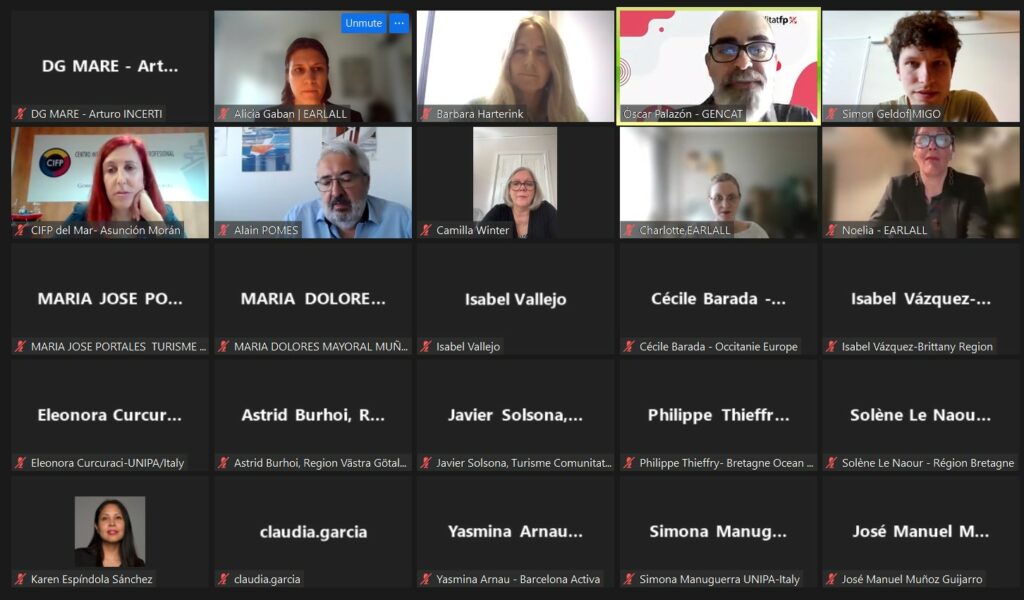
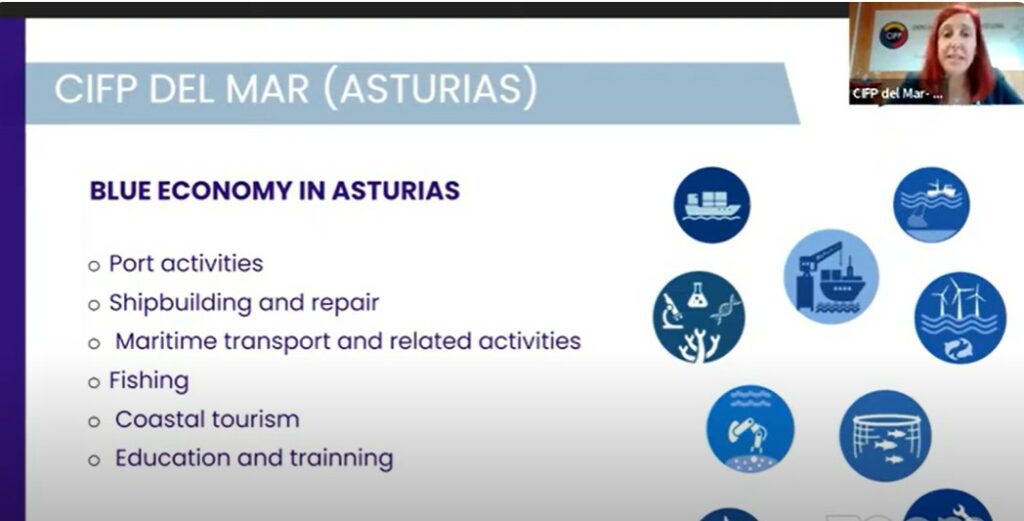
Regional Nautical Skills and Training Opportunities within Flanders Region
Simon Geldof, Teacher of nautical Techniques at the GO! Maritime Institute Mercator Ostend (Flanders Region, Belgium). The school is specializing in the merchant navy and fishery and is the only school in Belgium educating in the art of fishery. He introduced the nautical skills needs, challenges, and training opportunities in Flanders, including the small fishing fleet and the school’s efforts to improve navigational skills, and safety attitudes, and provide advanced training in firefighting and medical first aid. The school has been involved in a research study with the Belgian Federal Bureau for the Investigation of Maritime Accidents to understand better the type of accidents and causes within the fishing vessels. He also highlighted the school’s use of virtual reality technology and its aim to increase gender diversity in the predominantly male student body.
CIFP’s del Mar Blue Economy Training and Research within Asturias Region
Mª Asunción Morán Torío, Teacher of the VET Center “CIFP del Mar” (Asturias Region) presented the importance of the Blue Economy for a region such as Asturias, in which the sector represents 13% of the GDP and 14% of the employment. However, the region is facing a problem with the generational turnover. The main blue activities are port, shipbuilding and repair, maritime transport and related, fishing, coastal tourism, education and training. In this last field, the CIFP’s del Mar is the only school in the VET sector together with the University of Oviedo: marine merchant degrees and the Jovellanos Center: focused on reskilling and upskilling (lifelong training). The CIFP’s del Mar training offer includes initial Vocational Education and Training, Lifelong education and training for adults and Validation of non-formal and informal learning programs to prepare students for international work in various maritime sectors. They are looking into the future, bringing opportunities for the application of new technologies in teaching and training and becoming more active in the European Center of Vocational Excellence Networks.
Sustainable Ocean Resource Management in Norway
Barbara Harterink, Senior Adviser – Vestland County Council (Norway) highlighted the significance of the blue sector in the country’s economy, particularly in aquaculture, fisheries, and coastal tourism. She also mentioned a unique model where secondary vocational schools collaborate with the business sector to provide practical training and gain access to modern equipment. This partnership results in economic advantages for both parties, with 70% of the surplus going to the school for further blue skills development. In addition, she emphasised the succeeding and sustainable fishing industries in Norway, where blue schools assign quotas for commercial fishing species and offer practical training to students, including opportunities to witness the Northern Lights. To conclude she said that there is a need for skilled workers and growth potential.
Addressing Maritime Skills and Future Challenges in Brittany
Alain Pomes, Director of the Centre Européen Formation Continue Maritime (Brittany) emphasized the crucial role of the blue economy in tackling societal challenges such as access to water, food and energy. He highlighted initiatives like improved water management, sustainable fisheries, and energy transition through marine renewables. He also pointed out the significance of supporting education and employment in marine sciences and resource management to boost local economies in coastal areas, specifically mentioning the potential of Brittany, France. Philippe Thieffry, Energies Marines Renouvelables / Coordination Bretagne Ocean Power, shared updates on various projects, highlighting the Iberdrola Energy Spanish offshore wind project in France and the challenges it presented, particularly in terms of local skills. He mentioned the creation of dedicated training courses.
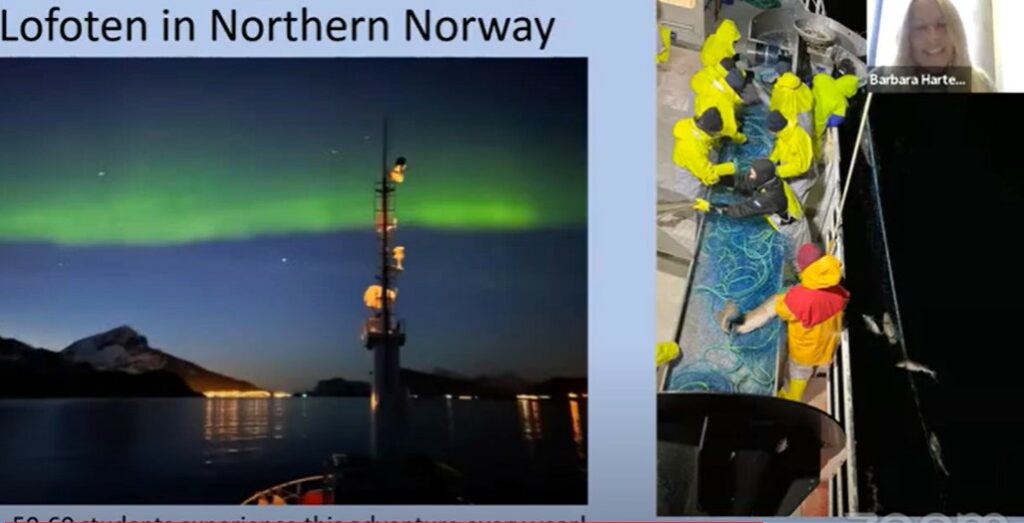
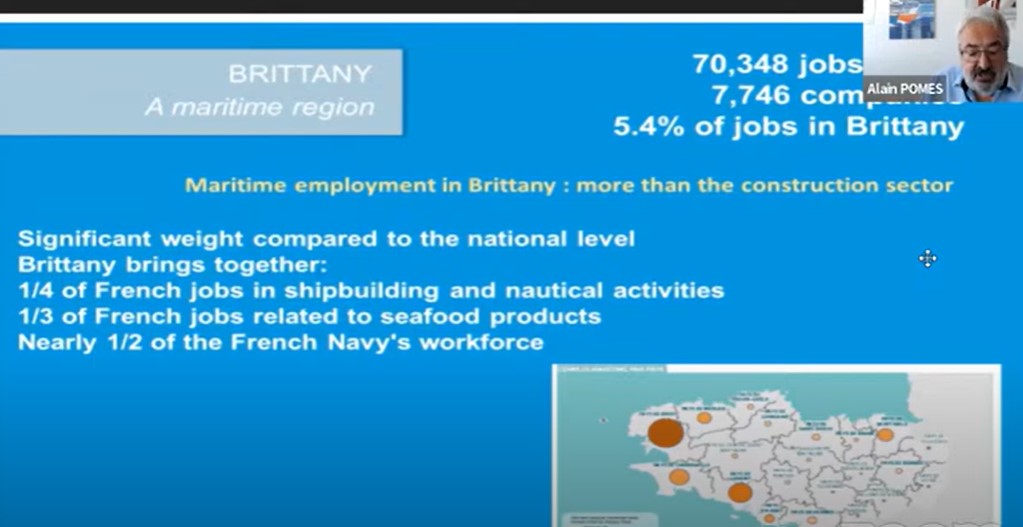
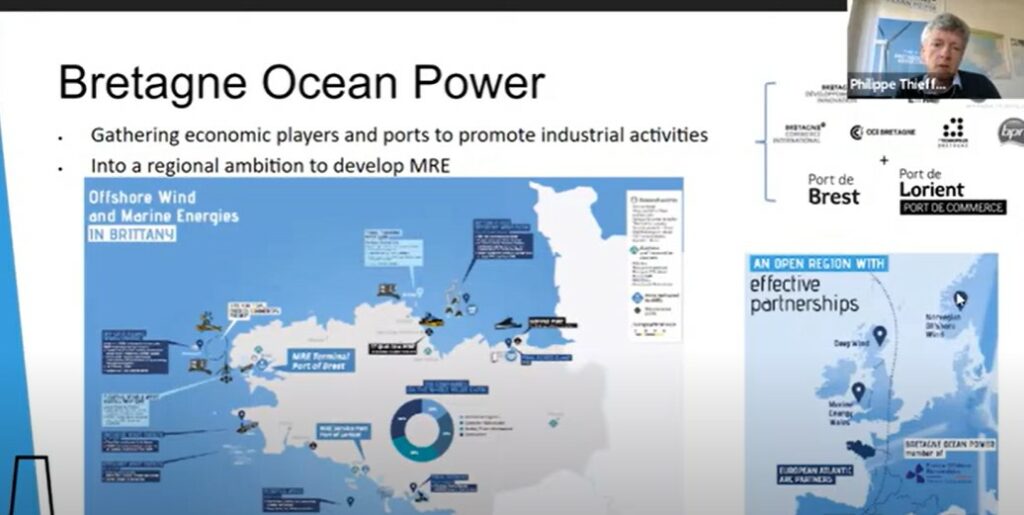
EARLALL warmly thanked its participants for joining and recognised that there is still work to do, but cooperation and collaboration among local and regional authorities are key to overcoming the challenges.
Resources
[ssba-buttons]

